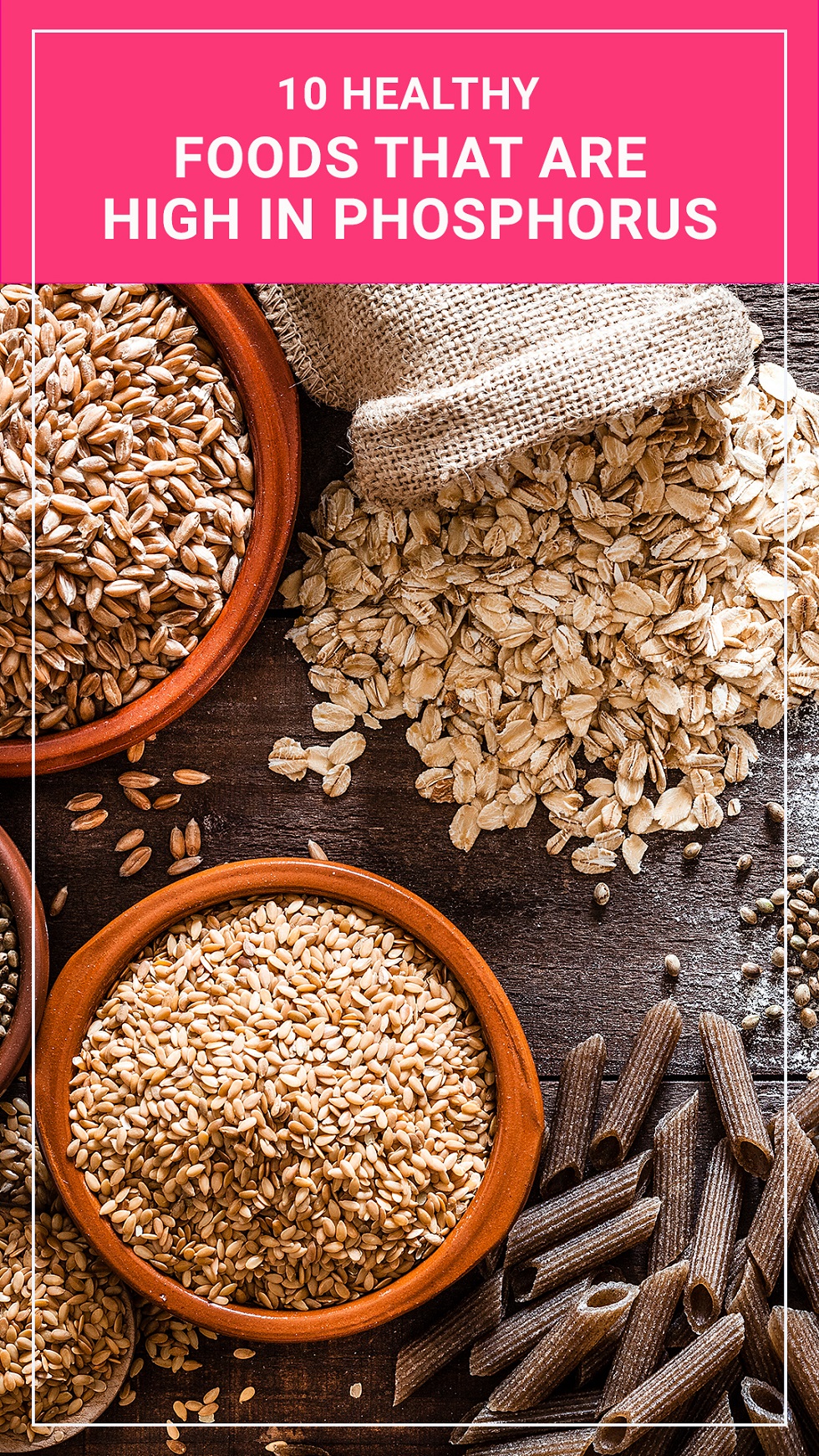
Important: This article is for informational purposes only. Please read our full disclaimer for more details.
Phosphorus is an essential nutrient that the body needs to function properly. It plays a role in several important processes, including storing energy, maintaining cell and tissue structure, and transporting oxygen through the bloodstream. Phosphorus is found in many foods, including dairy products, meat, poultry and seafood.
10 Healthy Foods That Are High in Phosphorus
1. Milk
Milk is a good source of phosphorus, providing about 38% of the daily recommended intake in one cup (240 ml) of whole milk. Milk contains many other important nutrients as well, including calcium and vitamin D.
2. Lean Meats
Lean cuts of beef and pork are an excellent source of phosphorus, providing about 30% of the daily recommended intake in a 3-ounce (85 g) serving. In addition to phosphorus, lean meat is also high in protein, which helps build and maintain muscle mass.
3. Fish
Fish like salmon and halibut are another good source of phosphorus, with about one-third of the daily recommended intake in a 3-ounce (85 g) serving. Fish is also rich in omega-3 fatty acids and other important nutrients that promote heart health and reduce inflammation throughout the body.
4. Poultry
Chicken and turkey are also good sources of phosphorus, providing about 25% of the daily recommended intake in a 3-ounce (85 g) serving. Poultry is a lean source of protein that is low in saturated fat and cholesterol.
5. Eggs
Eggs are another excellent source of phosphorus, with about 23% of the daily recommended intake in one large egg. Eggs are also a rich source of high-quality protein, vitamins, minerals and healthy fats.
6. Nuts and Seeds
Nuts and seeds are good sources of phosphorus, providing about 20% of the daily recommended intake in a 1-ounce (28 g) serving. In addition to phosphorus, nuts and seeds are also rich in fiber, healthy fats and other important nutrients.
7. Whole Grains
Whole grains like oats and brown rice are good sources of phosphorus, providing about 15% of the daily recommended intake in a 1-ounce (28 g) serving. Whole grains are also rich in fiber and other important nutrients for health.
8. Dried Fruits
Dried fruits like apricots and raisins are also good sources of phosphorus, providing about 10% of the daily recommended intake in a 1-ounce (28 g) serving. Dried fruits are a convenient way to add extra phosphorus to your diet and they also provide other important nutrients, including fiber and vitamins.
9. Beans
Beans are another excellent source of phosphorus, providing about 8% of the daily recommended intake in a 1-ounce (28 g) serving. In addition to phosphorus, beans are also a good source of protein, fiber and other important nutrients for health.
10. Dark Leafy Greens
Dark leafy greens like spinach and kale are also good sources of phosphorus, providing about 5% of the daily recommended intake in a 1-cup (30 g) serving. Dark leafy greens are also an excellent source of other important nutrients, including vitamins A, C and K.
These are just a few of the many foods that are rich in phosphorus. Including these foods in your diet can help ensure you meet your daily needs for this important nutrient.
You Might Also Like:
- 10 Foods That Are High in Vitamin E
- Top 10 Foods Highest in Protein
- The 10 Best Foods to Build Muscle
- 10 Foods That Are High in Vitamin A
- 10 Healthy Foods are Rich in Minerals
- Top 10 Foods High in Leucine
- 10 Foods High In Vitamin B5
- 10 Best Foods Rich in Selenium
- 10 Foods Rich in Vitamin B6
- 10 Foods That Are High in Riboflavin
- 15 Healthy and Delicious Low-Carb Snacks For Weight Loss
















